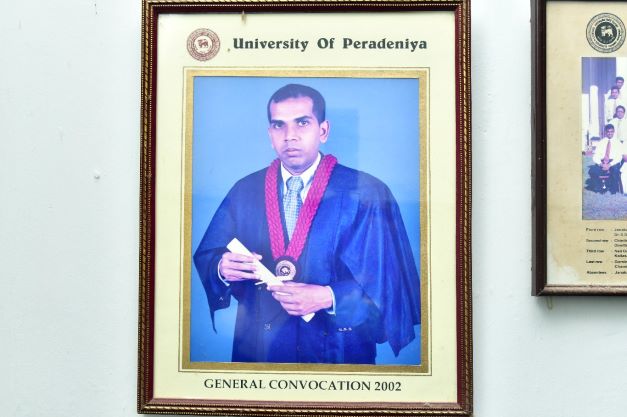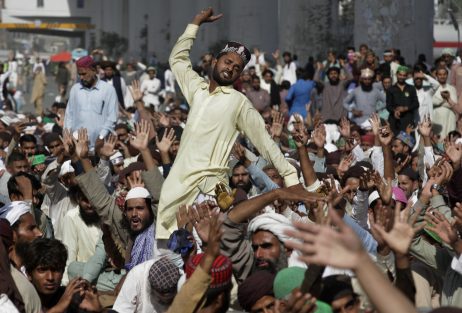By Umair Jamal
The Diplomat, December 2: Pakistan’s Information Minister“Many people think that the remedial steps taken by us [the government] are inadequate while the truth is that neither the government nor the state is completely ready to fight extremism,” Fawad said, while addressing a seminar organized by the Pakistan Institute of Peace Studies in Islamabad.
Fawad’s admission that growing extremism in the country poses a serious challenge to Pakistan’s stability comes after a series of recent setbacks that forced the state into making deals with right-wing Islamist groups of different sects.
Last month, the Tehreek-e-Labbaik Pakistan (TLP), a Barelvi religious group, forced the government into allowing it to operate as a political party even as the TLP’s workers had killed several law enforcement officials in clashes. In recent years, the group has openly challenged Pakistan’s foreign policy decisions and shown intent to take on the state without any hesitation.
Simultaneously, Pakistan has been negotiating a deal with the Tehrik-i-Taliban Pakistan (TTP), an organization of the Deobandi sect that has killed thousands of Pakistanis over the last decade. Pakistan’s decision to negotiate with the TTP comes years after the Pakistan military carried out a massive military operation against the group in the country’s tribal areas. The group has not only rebounded from that crippling military offensive but has also managed to unite numerous factions under its leadership.
Some groups in Pakistan carry agendas with an intent to spread their operations globally; others keep Afghanistan as a focus; some are India-oriented while many consider the domestic landscape their target and are sectarian. As a result, some of these groups wouldn’t shy away from inciting violence against the state if their political interests are not fulfilled by the ruling elite.

Some of these groups thrive as they receive support from state institutions. For instance, one of the reasons that the TLP has become a significant challenge for the Pakistani state is that the state itself adheres to the narratives that are propagated by the radical group. Unfortunately, what we see now is a race between different radical groups and the government to prove who is the bigger and better Muslim and win over the public’s support.
A few days ago, Pakistan’s Prime Minister Imran Khan asked universities to research the harmful effects of Western culture on Pakistan’s family system. There is not a single speech of the prime minister where he doesn’t link Pakistan’s economic troubles with citizens being lesser Muslims.
The issue is further complicated by political parties. They not only make electoral alliances with radical groups but also preach the same sectarian hate when in need of public support against their political foes.
Since the TLP’s restoration as a political party, leaders from all major parties have visited the group’s headquarters. Reportedly, the ruling party could even be considering making an alliance with the TLP in the upcoming local body elections.
On the other hand, when opposition parties need to weaken a government, their go-to weapon is bringing in religion to accuse the ruling party of either working for the United States or Israel. They accuse the government of attempting to make Pakistan a liberal country.

Unable to draw people to join its protest marches with its raising of political and economic issues, the Pakistan Democratic Movement, an opposition alliance, is now calling on the public to join a jihad against the Imran Khan government, as religious rhetoric resonate with the masses. Its main reason for appointing Maulana Fazlur Rehman, the head of the Jamiat Ulema-i-Islam-Fazl (JUI-F), as the president of the alliance is due to his ability to mobilize and bring onto the streets thousands of students from his massive madrassa network across Pakistan.
These moves by parties in government and the opposition show that there is little will and intent in Pakistan’s political class to tackle the issue of religious extremism as everyone has benefited from radicalism one way or the other.
The country has become so radicalized that any attempt by the state or the government to push back against the rising extremism could very well backfire. Thus, for some, it’s too much risk and for others, it doesn’t even constitute a problem.
The last major opportunity to challenge rising extremism was when the country formed the National Action Plan (NAP) against extremism in 2014. However, that plan has not moved beyond reports and briefings.
END





























































